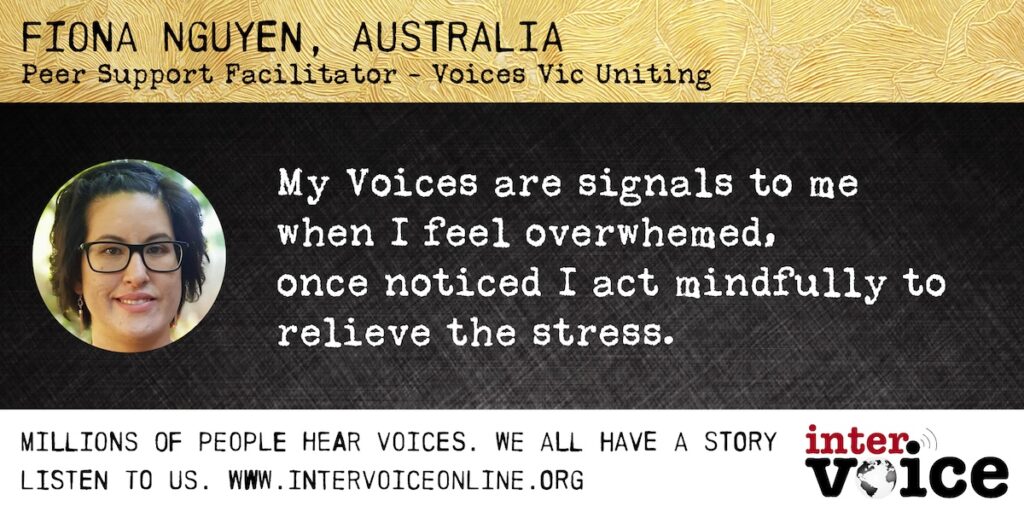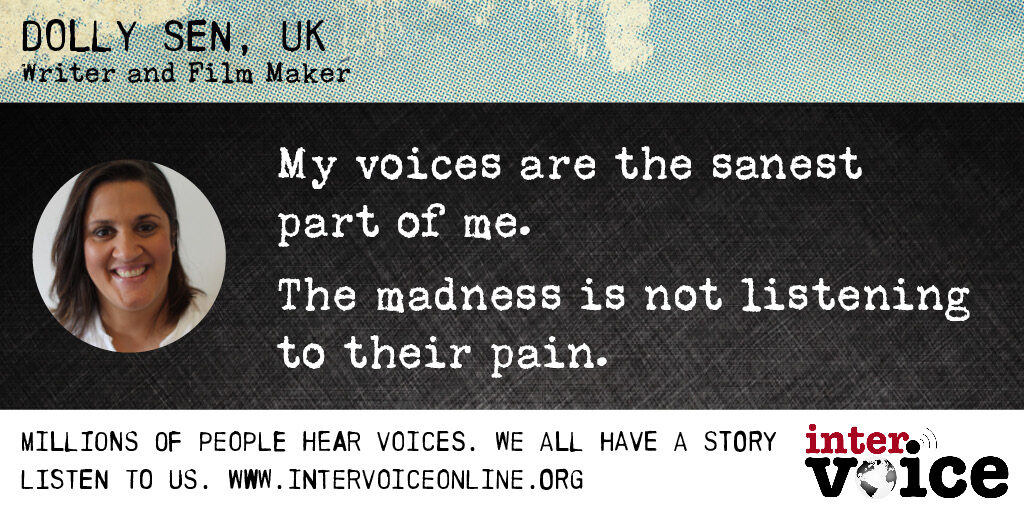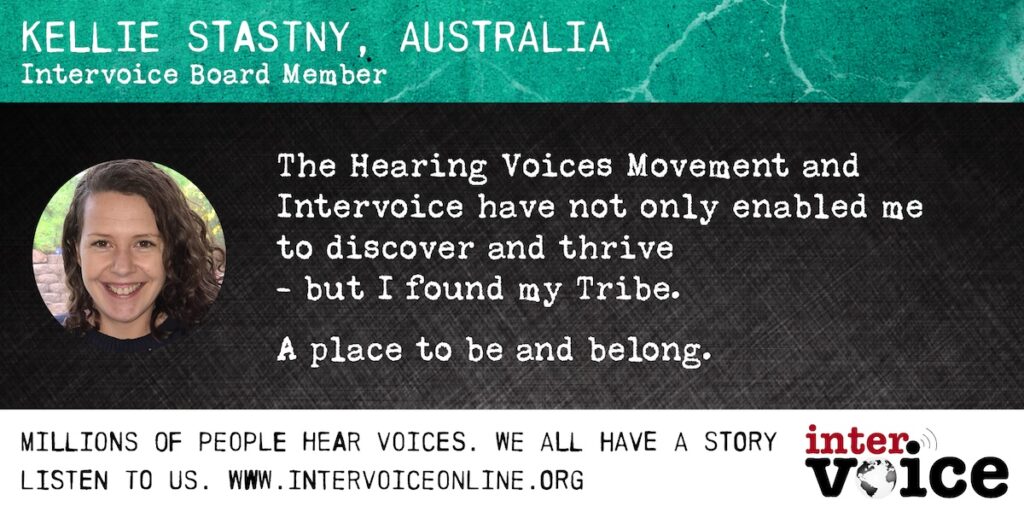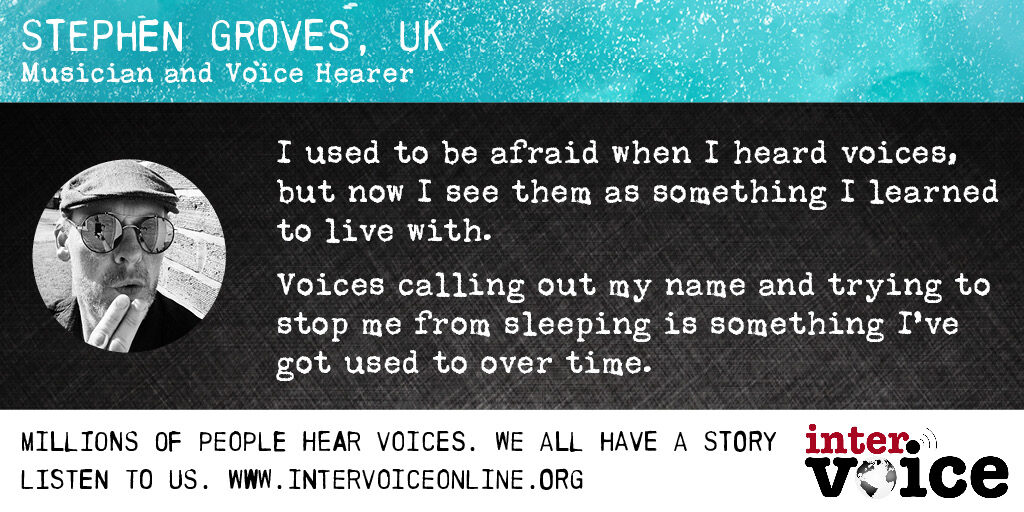Voice Collective, a project that supports young people who hear voices in the UK, have shared the following interview with a young person who hears voices and facilitates one of their groups. We hope this will be interesting to people who are thinking of starting to facilitate a Hearing Voices Group, whatever age they are.
You can find out more about Voice Collective, here: www.voicecollective.co.uk.
Note: this article is from our archives, back in 2014
Claire: So, first off, why did you decide to be a facilitator?
Eoin: When other people in VC had proved so helpful to me: it made me think rather deeply on the matter. Eventually, I decided that at least some good should come from my misery! I like young people anyway, I think they’re very interesting, and the fact that I was able to receive support from VC when I was their age makes it more important that they are provided with the same support.
Claire: What was the transition like from group member to group facilitator?
Eoin: For me, as kind of a young person/older person/facilitator kind of hybrid, the transition wasn’t too shocking. Facilitators are essentially members of the group, but with a few key differences.
Claire: How do you find facilitating VC groups? (broad I know but any impressions would be great)
Eoin: I have a small reputation for coming up with analogies, so here goes: It’s much like being a car. The group members, they are the steering wheel, they decide where the car goes. The facilitators are a bit like the accelerator and the brakes: they can help the discussion or activities get to a point where the members are feeling supported and getting what they need, similarly if the group feels it’s going somewhere they don’t want to go, the facilitators can slam the brakes.
For the purpose of this analogy, the car is an automatic.
Claire: What’s good about having lived experience as a facilitator?
Eoin: It gives you a solid basis of understanding, allowing you to call on a reservoir of previous experiences that can draw parallels to any voices based phenomenon a group member might want to discuss. It also projects almost a miasmic aura of trust and mutual confidence. It is difficult to describe, but just the fact that you know that they hear voices, and the fact that they know that you hear voices makes an atmosphere of trust much stronger.
Claire: What’s challenging about having lived experience as a facilitator?
Eoin: A couple of things. My voice tends to be most disruptive when I am in a position of trust or empowerment, so that’s always hard. Also, when I am personally having a hard time, it can be difficult to strike up a balance of being strong for them/showing them weakness. Weakness lets them know I am still human. But strength can be encouraging. It can be a difficult balance to strike.
Claire: What’s been your best moment ever as a facilitator?
Eoin: I’m not sure really. Just any time I make a young person laugh with my silliness. This just applies to me in real life too: If someone laughs at my jokes, they’re in my good books! Laughter is an incredibly good medicine, it’s like a glorious cure-all.
Claire: What’s it like being quite close in age to the group members?
Eoin: It’s kind of fun, actually. There are so many popular culture references/nerdy things that we can talk about which generally would sail over the head of an older facilitator. We can chat about video games and internet stuff, and I understand what they’re on about. It makes it all a great big adventure with ups and downs, laughter and tears.
Claire: Looking back, have things changed in how you facilitate and use your lived experience?
Eoin: I’ve learnt that each group wants different things. Some group members want to talk, some want to do activities. And again, there are differences even in those two ends of the spectrum: some group members want to talk about voices, some want to talk about anything but voices. Some want activities about their voices, some just want to have a chance to do something fun and have a chat at the same time. If you’re lucky, you’ll get a group that generally want the same things to begin with. If they don’t, it’s a matter of titrating the subject matter of the group so it suits everyone.
Claire: What are your top tips for facilitators with lived experience?
Eoin: Use you experience to benefit the group members. If you feel an aspect of your experience is relevant and important to mention, then say it. Try not to launch off on a huge life story of your experiences: remember you are here for them. Different young people will be at different stages in their journey. When a young person is feeling very hopeless, when they are in their ‘dark night of the soul’, try to recall a time when you have felt similarly, and think of what you would have liked people to do.
Claire: Have you got any tips for facilitators without lived experience?
Eoin: If you don’t understand what something is like, don’t pretend you do. It’s human to not know. Show them how keen you are to be helpful, and remember that you are steered by their agenda, not vice versa.
Claire: Finally, any last thoughts or words of wisdom?
Eoin: As a facilitator, you are guided by what the young people want, and you have responsibility, but it is incredibly important not to sit too high on your ‘facilitator chair’. You need to be able to level with them, have a laugh with them as well as listen to their worries and concerns. Above all, regarding young people in a bad place, remember that no young person is EVER a lost cause. It can seem dark and hopeless in their eyes, but they’ve got to have people around them who hold hope for them. It’s an honour to be one of those people in their life, in my opinion.
Cue some inspiring music!









